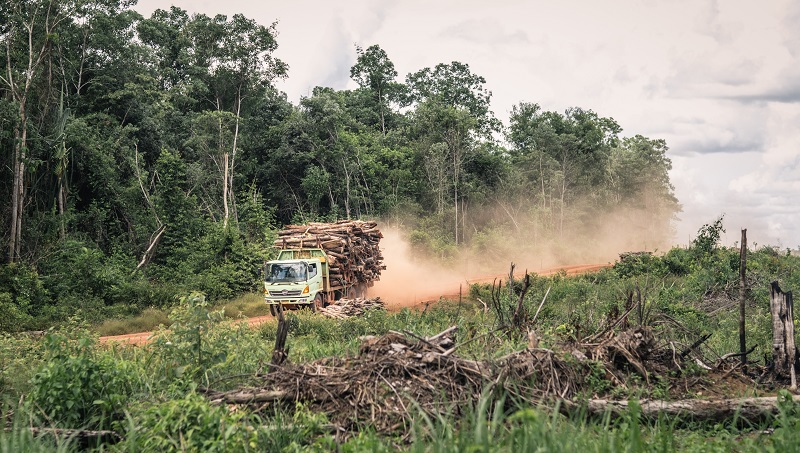In 2014, Indonesian conglomerate Medco paused a timber project that had been clearing out forests for years. It was just not economically viable anymore. But then, through funds meant to deliver climate goals, Indonesia’s government gave it a new lease of life.
Medco had initially planted a vast timber plantation to produce wood chips for exports. Then, in 2017, Indonesia injected Medco with $4.5 million to build a biomass plant in the area and committed the state-owned electricity company to buy the energy it generated. In 2021, the government gave the plant an extra $9 million.
The company said it needs to almost double the size of its plantation to meet the demands of the power plant, and that it would continue to use wood harvested from the forest as it is cleared.
Ultimately, the most affected were local villagers depending on the forest. The project has made it harder for Marind people, hunter-gatherers indigenous people to the lowlands of Papua, to find food to eat.
This story is the result of a new Climate Home News investigation in collaboration with The Gecko Project and Project Multatuli, both publications based in Indonesia.
This week’s news:
- “Green” finance bankrolls forest destruction in Indonesia
- FSC’s rehab scheme for forest destroyers under fire after fresh allegations
- Amazon gateway city Belém will host Cop30 climate talks
- Comment: Climate movement must switch on to UAE threat
Our reporter Joe Lo is in Paris covering key UN plastics treaty negotiations. Check out our coverage:
- Row over veto powers holds up Paris plastic treaty talks
- Comment: How a local victory against petrochemicals can spur global action on plastics
Forest protection has been on our radar recently, as allegations surged that forest logging companies were using a sustainability certification scheme called the FSC to brand themselves as sustainable while continuing to clear forests.
At its assembly last year, the Forestry Stewardship Council (FSC) agreed to give their stamp of approval to companies that have cut down trees between 1994 and 2020 if they restore part of the forests and compensate communities.
These companies include two Indonesian pulp and paper giants, Asia Pacific Resources International Limited (April) and Asia Pulp and Paper (APP), which had cleared vast areas of the tropical rainforest for decades.
But environmental groups accused both companies of sourcing wood from suppliers which continue to cut down intact forests. One of the suppliers, they found, cut down an area equivalent to 20,000 football pitches.
FSC told Climate Home News it “will not engage with any organisation that continues to be part of destructive activities”. “The FSC should prepare itself not to be fooled,” one campaigner responded.
